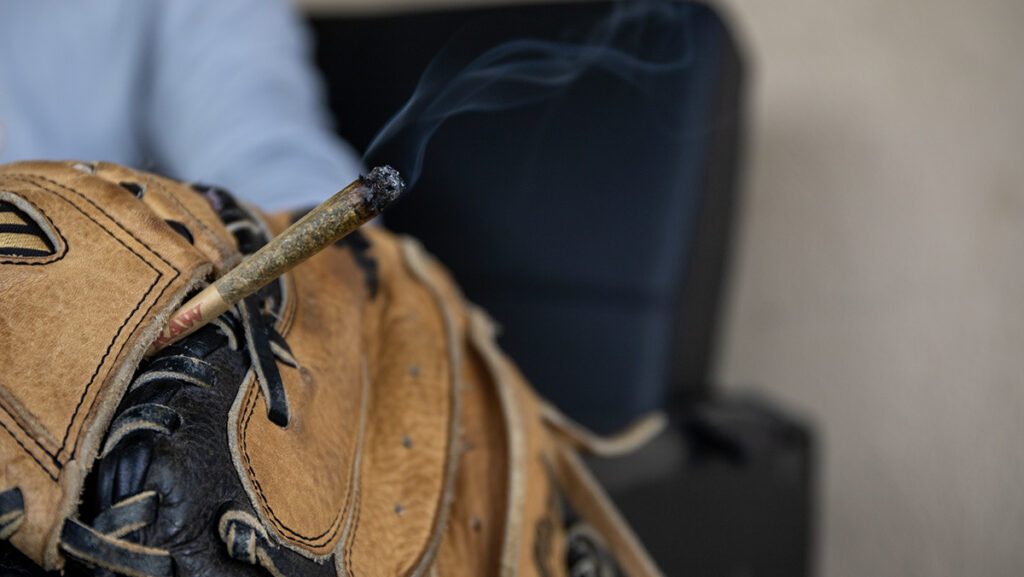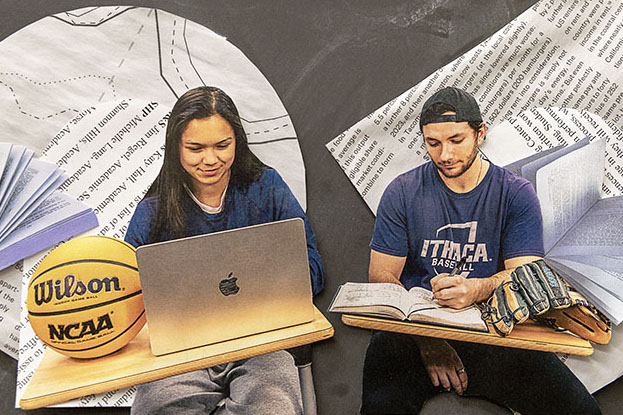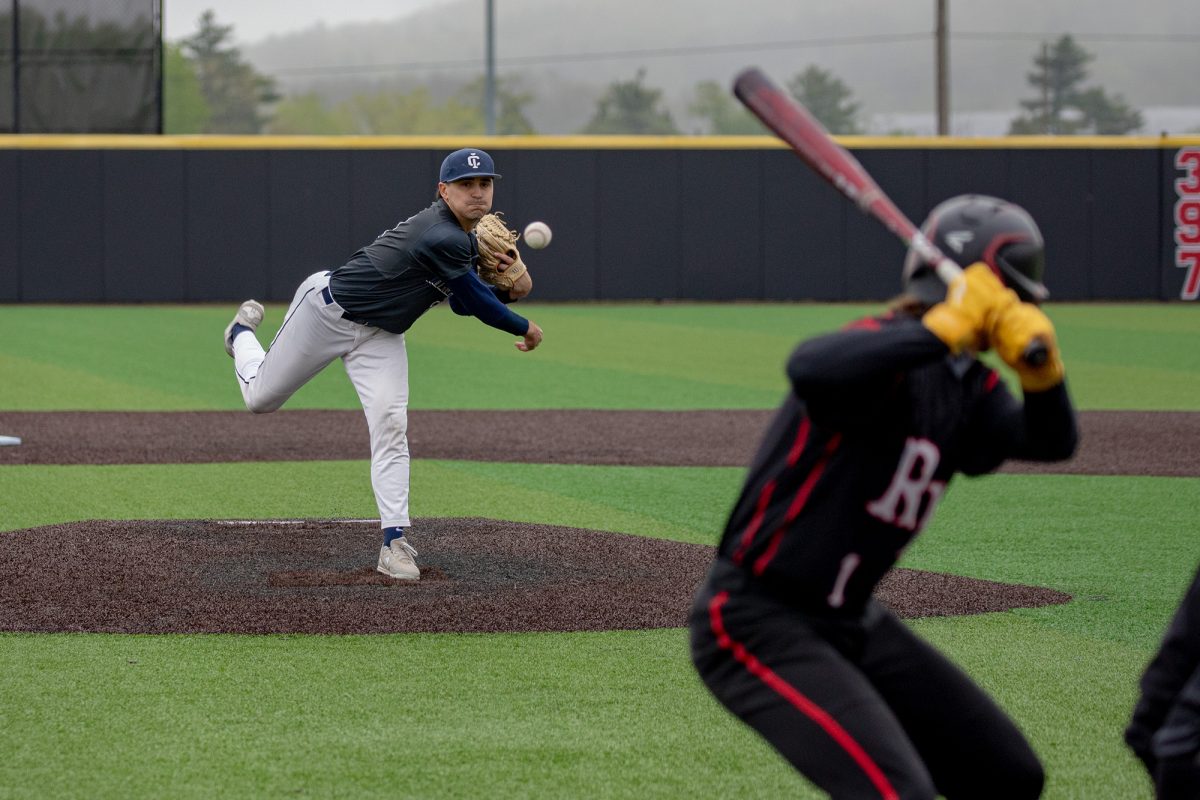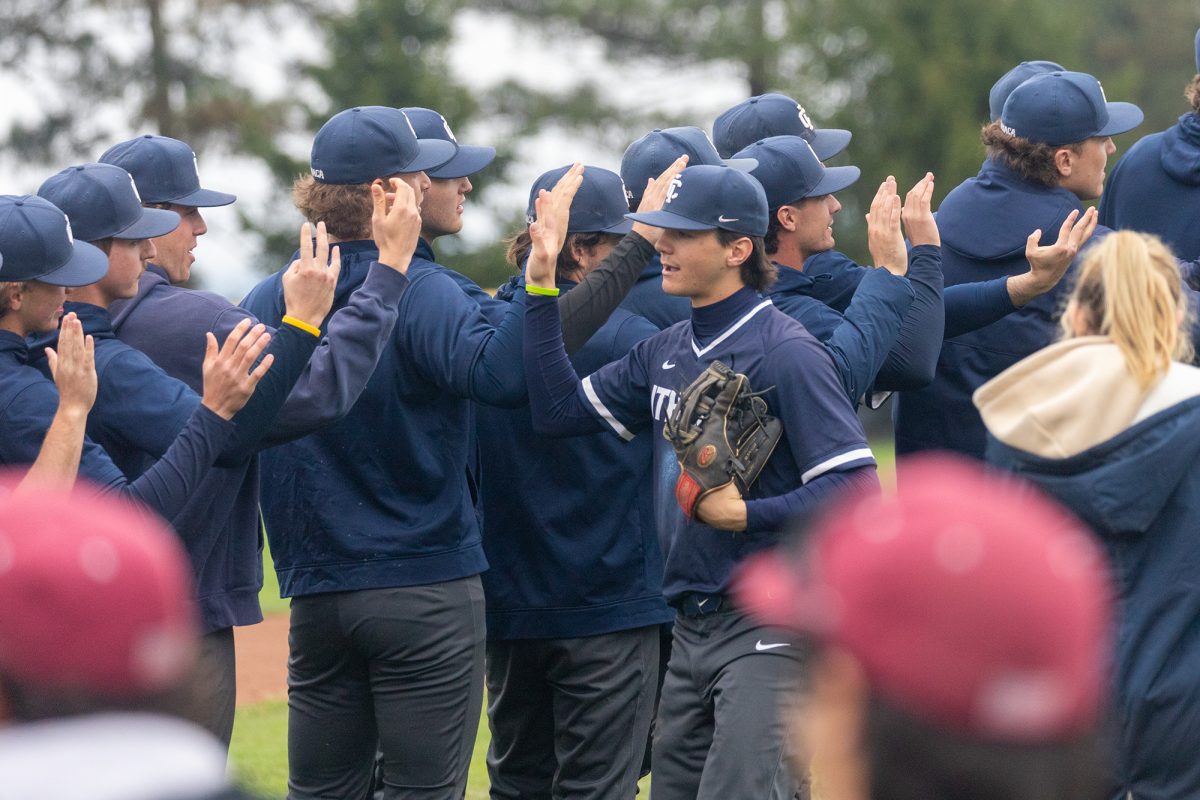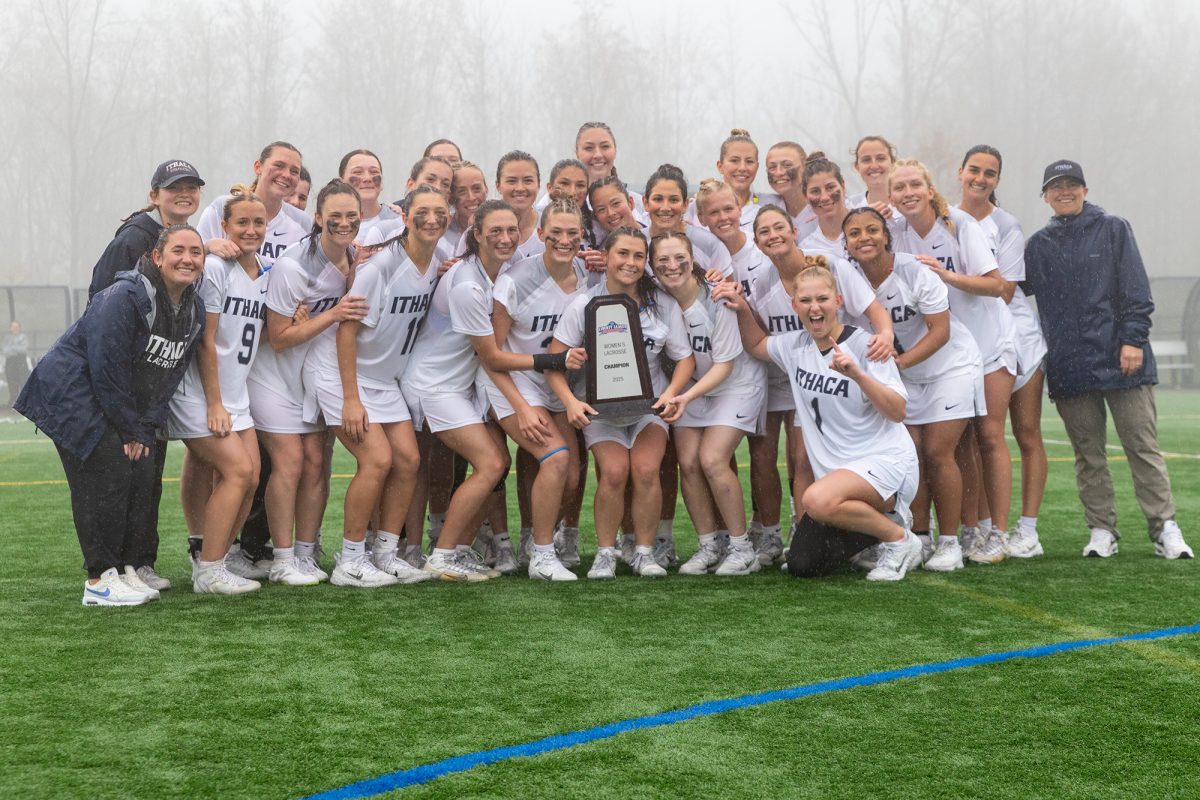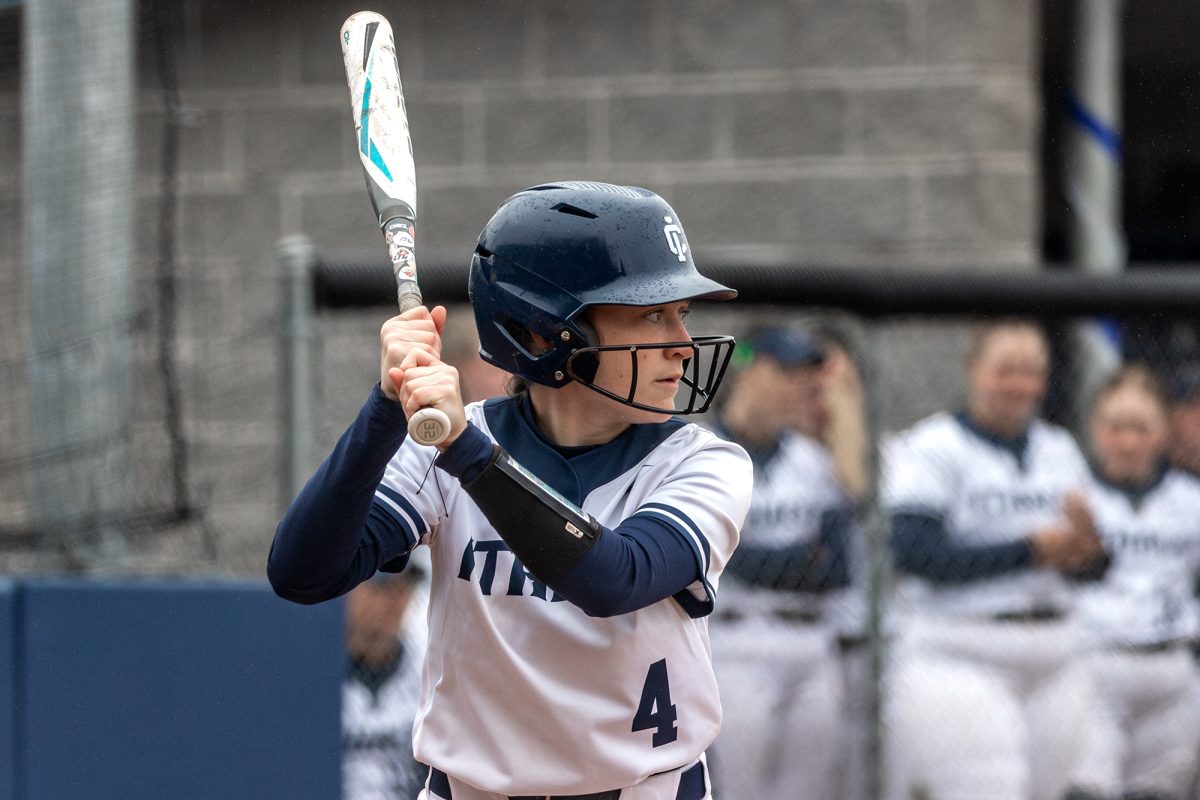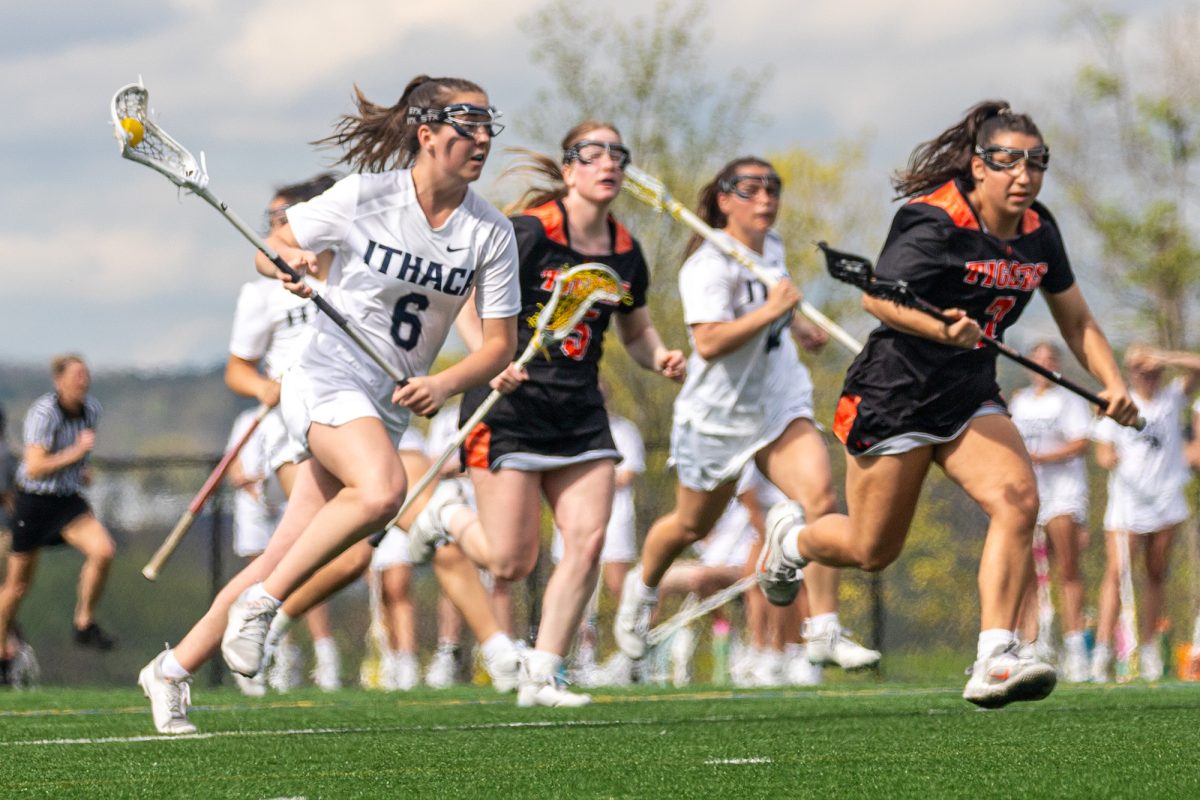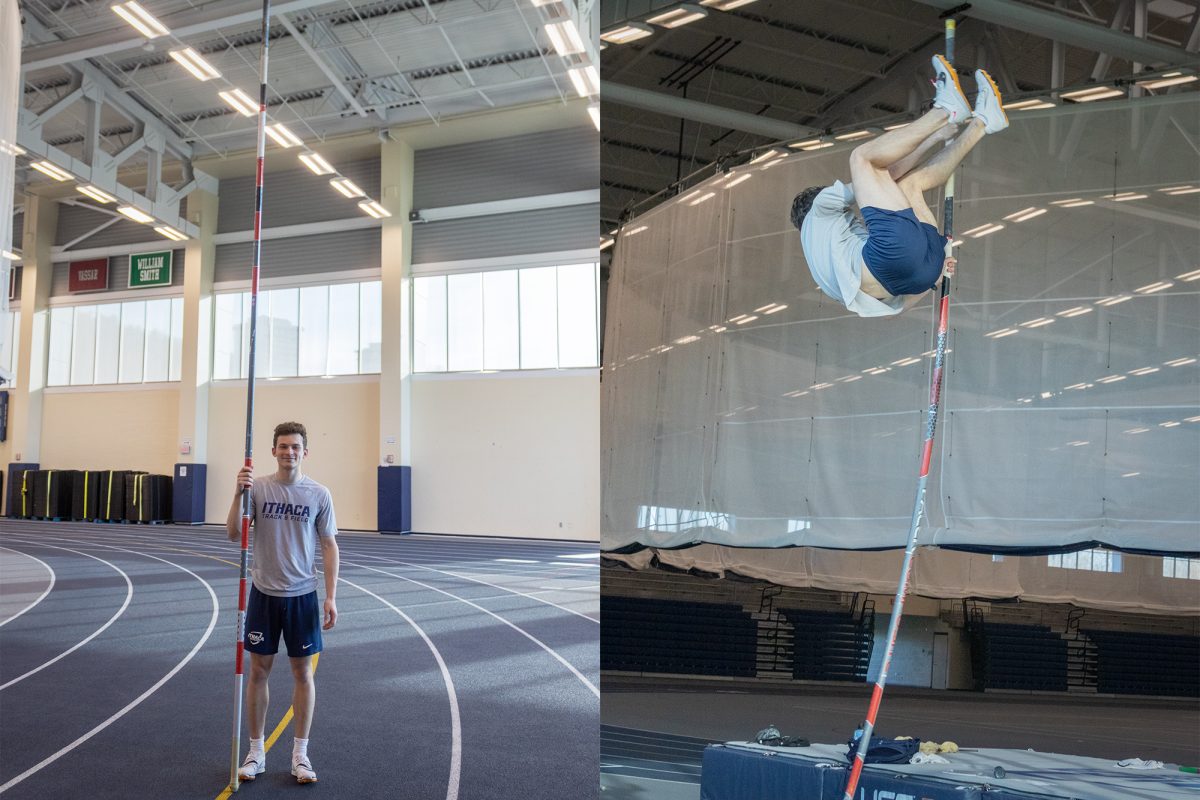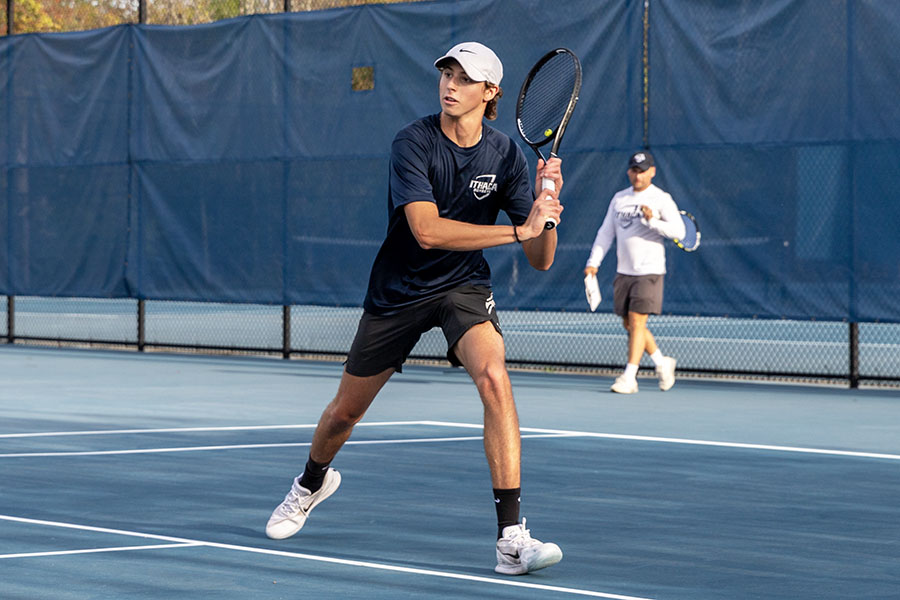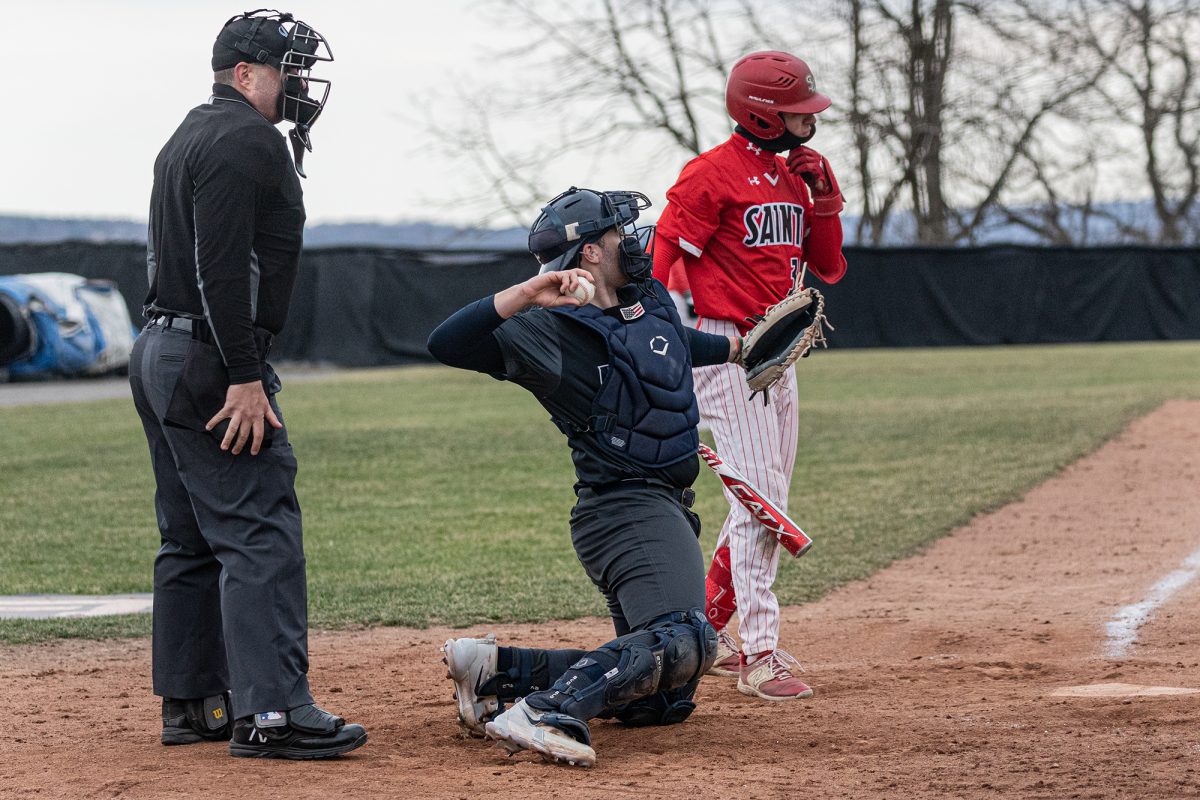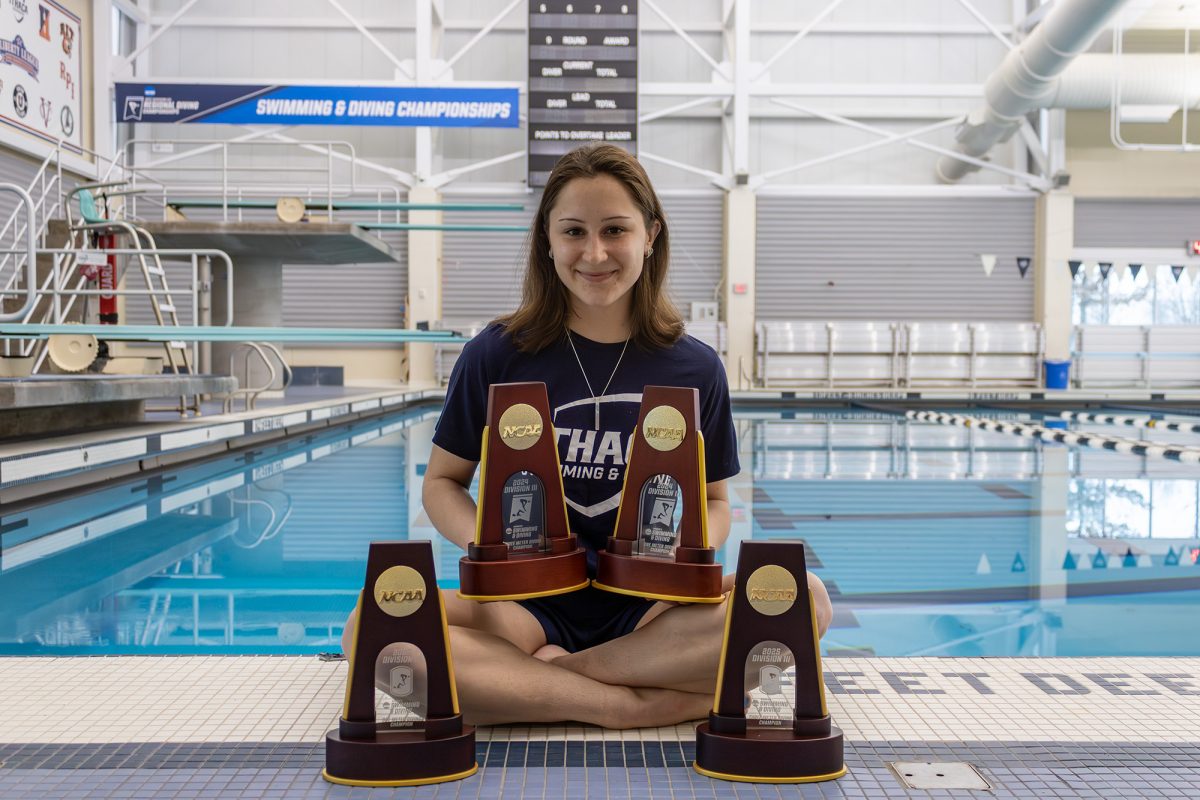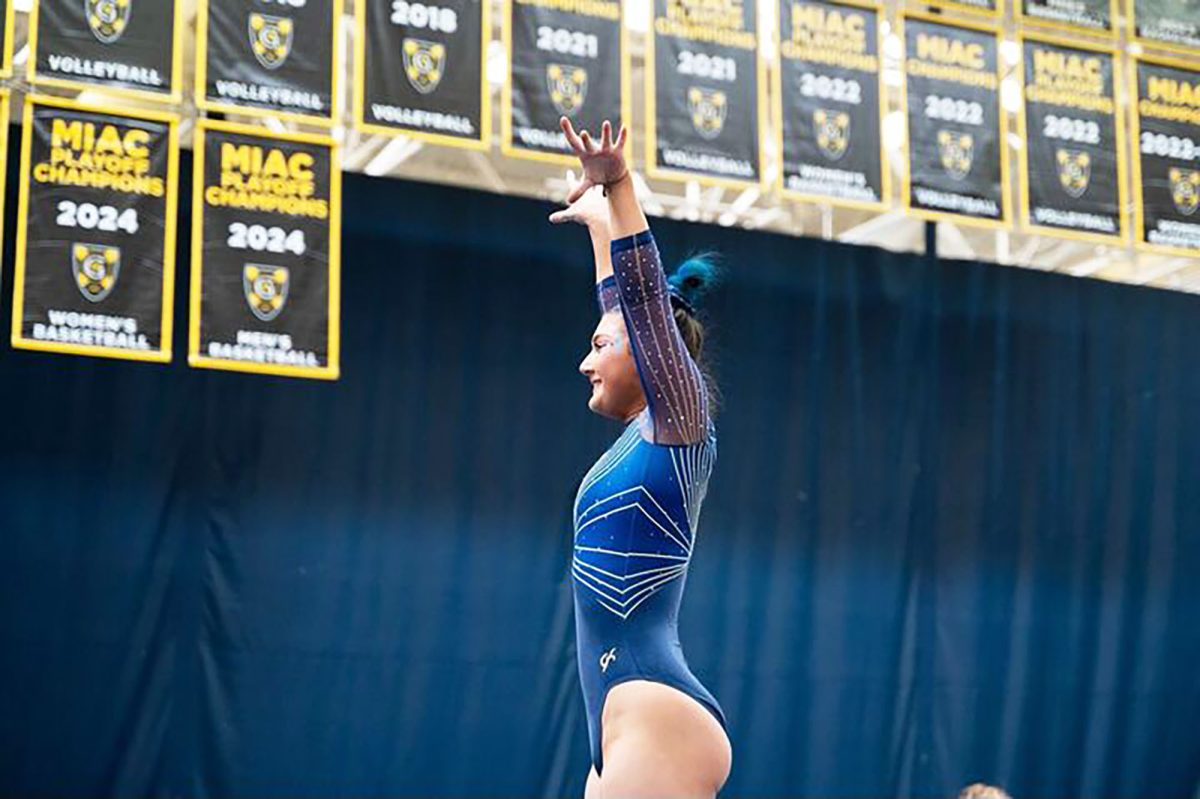Every night, Noah*, a student at Ithaca College, finishes his day by getting high.
He is not alone: A 2020 survey by the National Institute on Drug Abuse revealed that 44% of college students reported smoking marijuana in the past year. The drug was legalized in New York state in 2021 and The Princeton Review ranks Ithaca College as No. 21 on its list of colleges with the most students smoking marijuana.
But Noah faces more risk than a typical college student because of his habit. He is also a student-athlete, meaning his use of the drug is a direct violation of NCAA policies. He said he smokes recreationally, but there are plenty of other reasons it can be beneficial for an athlete to smoke.
“It definitely helps with soreness,” Noah said. “If you’ve had a strenuous weight room workout, it’s nice to unwind. It helps you relax a little bit. It makes stretching a lot more fun, you know?”
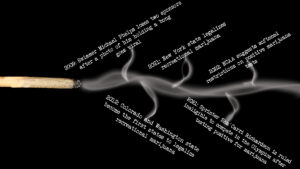
There are two main chemical compounds in cannabis: tetrahydrocannabinol and cannabidiol. While THC has psychoactive properties — what gives the user a “high” — CBD does not. Marijuana refers to the part of the cannabis plant that contains high amounts of THC.
As marijuana has become fully legal in 21 states, though it is still illegal federally, athletes including Calvin Johnson and Megan Rapinoe have begun to speak out in favor of the substance. Although there is no official estimate of how many athletes use some form of cannabis, anecdotal claims from former athletes say anywhere from 50–90% of athletes in varying sports consume the substance.
Part of why there is a debate about the use of CBD and THC in sports is because of a lack of studies. THC is only recently becoming legal, with Colorado and Washington becoming the first states to legalize it recreationally in 2012. CBD presents gray areas — it is not psychoactive but many organizations, including the NCAA and World Anti-Doping Agency, are unclear about whether or not it is fully banned.
Thomas Swensen, professor in the Department of Exercise Science and Athletic Training, said via email that the impact cannabis can have on athletes is beginning to be researched, but scientists have not reached a conclusion yet.
“The most widely accepted uses are with CBD,” Swensen said. “But none of it (THC/CBD etc) is well enough studied to make definitive claims.”
Courtney Gray, clinical professor in the Department of Exercise Science and Athletic Training, said she is not an expert in the subject and cannot provide medical advice to athletes. Instead, she refers them to the team physician, Andrew Getzin, for guidance. Getzin declined an interview request from The Ithacan.
Gray, however, said she has heard of athletes who switch to cannabis for pain management instead of using opiates, which are more commonly prescribed for athletes rehabbing an injury.
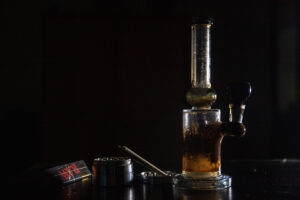
“[Opiates] don’t work great over time for chronic pain, and now, everyone’s really educated on concern for addiction,” Gray said. “The first I read [about athletes using cannabis products] was just NFL players trying it and getting a good result but then triggering positive tests.”
At the college, Gray said athletes are not subject to drug testing by athletic administration. However, that does not mean the athletic trainers toe the line with using substances. At the Division III level, student-athletes may be tested at random during postseason play. If an athlete does test positive, they could face a year-long suspension — although the NCAA suggested a new policy in February 2022, which offers education and management plans for athletes in lieu of suspension. Different professional leagues also have their own consequences.
These consequences are something Noah knows and thinks about when smoking. He said it is unfortunate that such policies still exist even as the use of marijuana becomes more widespread.
“It does cross my mind every now and then that, because of the actions I’ve taken, because of the habits that I have … I do kind of risk the team’s success,” Noah said.
Noah even said he has been caught by campus police and resident assistants several times while at the college, but they treated him like any other student. Because his past infractions have not gone through his coach, he feels more comfortable in his habit.
“I definitely wouldn’t want to face my coach after getting in trouble,” Noah said. “It’s definitely a relief [that it is not reported to my coach]. They treat you like an adult. Even though you’re making bad choices, they are your own personal bad choices.”
Not all experiences athletes have with marijuana are positive, though. Amelia* was originally recruited for a varsity team but quit before the season began, in part because of her reduced lung capacity from smoking marijuana. The toxins from smoking marijuana can cause the same lung problems as from smoking tobacco, including harming lung tissues and increased risk of bronchitis, according to the CDC. Though she tried to cut back, she said she was not able to and has been smoking every day for the past five years.
“I knew it was negatively affecting my health,” Amelia said. “I couldn’t keep up with the conditioning. … I definitely think the main thing was me smoking weed and the effects I’ve had from that for such a long time.”
Like Noah, Amelia described her use of marijuana as a “habit.” But while Noah’s habit has not impacted his ability, Amelia said her marijuana use was a deciding reason, but not the only reason, for her quitting her sport.
“I felt really left out on the team and excluded and judged because of my being out of shape,” Amelia said. “And I think that definitely had a direct correlation to my weed use. And I would like to say that I maybe wouldn’t have quit if I [was not smoking] … [but] mentally and physically, it was too much.”
Now a member of a club sports team, Amelia said she has been getting better at cutting back. Although she still thinks it affects her play, she only smokes at the end of the day and finds it to be beneficial to her.
“Coming back from practice and smoking afterward is definitely a good way to relax,” Amelia said. “You just let go of the day, you know, and just not have to worry about everything going on.”
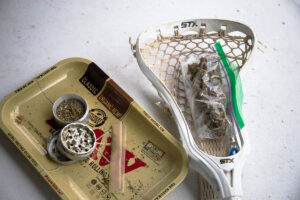
A 2021 study acknowledges that neither THC nor CBD has enough research to definitively say if they are beneficial or harmful for athletes, but current studies suggest that at least CBD “may have some promise” in improving athletic recovery. Gray said the sheer lack of information is likely why the NCAA is yet to fully revisit its stance on limiting the use of THC.
“When they hand down [a recommendation] … it’s largely based on research and data,” Gray said. “So I think without that, I don’t see anything necessarily changing until there’s some bigger studies done about the risk versus the benefit.”
Even so, Noah said he does not understand why the substance is still prohibited by so many sports organizations. Among the many athletes on his team who smoke marijuana, he said he does not know anyone who uses it before a competition. Even if they did, he said, he does not see how it can be a performance enhancer, as it is typically used for relaxation.
While he does not know what his use will look like after his time in college, for now, Noah said his smoking habit is no different than any other daily routine someone may have.
“Plenty of people wake up and have their morning coffee to get them all hyped up and energized,” Noah said. “I guess it’s just the antithesis of coffee.”
*Editor’s Note: Names have been changed to protect anonymity. Both requested to remain anonymous because of their involvement with varsity teams and fear of retaliation.


